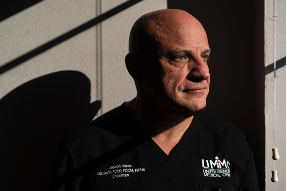Impact of an oral nutritional supplement on nutritional status in older adults with malnutrition: A randomized controlled trial
Oral Nutritional Supplements Improve Nutritional Status in Malnourished Older Adults.
Abstract
Background: The aging population is expanding at an unprecedented rate, leading to a significant increase in the prevalence of malnutrition among older adults. Oral Nutritional Supplements (ONS) have emerged as a widely accepted strategy to address the nutritional needs of this demographic. Objective: This study aimed to evaluate the impact of an ONS on the nutritional status of malnourished older adults. Methods: This was an open-label, randomized-controlled, parallel-group, single-centered study. Recruitment criteria were age ≥60 years, and mini nutrition assessment-short form (MNA-SF) score ≤11. A total of 50 participants were randomly assigned to the intervention (IG) and control (CG) groups (1:1 ratio). The IG received 200 mL of ONS as a bedtime drink for 12 weeks, while the CG received 200 mL of water. Nutrition status, biochemical analysis, and dietary assessment were performed at the beginning and end of the study. Results: Forty-two participants (IG: n=20, and CG: n=22) completed the study. After 12 weeks, the IG showed a significant improvement in the MNA-SF score (p<0.001) compared to the CG (p=0.118). The IG experienced a substantial increment in the vitamin D level (p=0.002). No significant improvements were found in the serum albumin and haemoglobin levels in either group. The intervention led to significant increases in daily intake of energy (p<0.001), carbohydrate (p=0.013), protein (p<0.001), and fat (p<0.001) in comparison to the control group. Conclusion: Supplementing with an ONS, along with a regular diet, significantly improved nutritional status, some biochemical parameters, and daily intake of energy and macronutrients in older adults with malnutrition.Downloads
References
Secher M, Soto ME, Villars H, van Kan GA, Vellas B. The Mini Nutritional Assessment (MNA) after 20 years of research and clinical practice. Reviews in Clinical Gerontology. 2007;17(4):293-310.
Vellas B, Guigoz Y, Garry PJ, Nourhashemi F, Bennahum D, Lauque S, et al. The Mini Nutritional Assessment (MNA) and its use in grading the nutritional state of elderly patients. Nutrition. 1999;15(2):116-22.
Guigoz Y. The mini nutritional assessment (MNA®) review of the literature-what does it tell us? Journal of Nutrition Health and Aging. 2006;10(6):466.
Leslie W, Hankey C, editors. Aging, nutritional status and health. Healthcare; 2015: MDPI.
Na W, Kim J, Kim H, Lee Y, Jeong B, Lee SP, et al. Evaluation of oral nutritional supplementation in the management of frailty among the elderly at facilities of community care for the elderly. Clinical nutrition research. 2021;10(1):24.
Zhang H, Qiu Y, Zhang J, Ma Z, Amoah AN, Cao Y, et al. The effect of oral nutritional supplements on the nutritional status of community elderly people with malnutrition or risk of malnutrition. Asia Pacific Journal of Clinical Nutrition. 2021;30(3):415-23.
Stange I, Bartram M, Liao Y, Poeschl K, Kolpatzik S, Uter W, et al. Effects of a low-volume, nutrient-and energy-dense oral nutritional supplement on nutritional and functional status: a randomized, controlled trial in nursing home residents. Journal of the American Medical Directors Association. 2013;14(8):628. e1-. e8.
Pereira SL, Shoemaker ME, Gawel S, Davis GJ, Luo M, Mustad VA, et al. Biomarker Changes in Response to a 12-Week Supplementation of an Oral Nutritional Supplement Enriched with Protein, Vitamin D and HMB in Malnourished Community Dwelling Older Adults with Sarcopenia. Nutrients. 2022;14(6):1196.
Chew STH, Tan NC, Cheong M, Oliver J, Baggs G, Choe Y, et al. Impact of specialized oral nutritional supplement on clinical, nutritional, and functional outcomes: A randomized, placebo-controlled trial in community-dwelling older adults at risk of malnutrition. Clinical Nutrition. 2021;40(4):1879-92.
Huynh D, Devitt A, Paule C, Reddy B, Marathe P, Hegazi R, et al. Effects of oral nutritional supplementation in the management of malnutrition in hospital and post‐hospital discharged patients in I ndia: a randomised, open‐label, controlled trial. Journal of Human Nutrition and Dietetics. 2015;28(4):331-43.
Organization WH. Integrated care for older people: guidelines on community-level interventions to manage declines in intrinsic capacity. 2017.
Yeung SS, Lee JS, Kwok T. A Nutritionally Complete Oral Nutritional Supplement Powder Improved Nutritional Outcomes in Free-Living Adults at Risk of Malnutrition: A Randomized Controlled Trial. International Journal of Environmental Research and Public Health. 2022;19(18):11354.
Jayawardena R, Wickramawardhane P, Dalpatadu C, Hills AP, Ranasinghe P. The impact of an oral nutritional supplement on body weight gain in older adults with malnutrition: an open-label randomized controlled trial. Trials. 2023;24(1):625.
Cereda E. Mini nutritional assessment. Current Opinion in Clinical Nutrition & Metabolic Care. 2012;15(1):29-41.
Jayawardena R, Jeyakumar DT, Gamage M. Development of a food exchange atlas for Sri Lankan adults. Journal of Food Composition and Analysis. 2023;118:105154.
Chen Y-H, Lee C-Y, Chen J-R, Ding M-Y, Liang F-Q, Yang S-C. Beneficial effects of oral nutrition supplements on the nutritional status and physical performance of older nursing home residents at risk of malnutrition. Nutrients. 2023;15(19):4291.
Malafarina V, Rexach JAS, Masanés F, Cervera-Díaz MC, Lacasa LL, Ortigas AO, et al. Results of high-protein, high-calorie oral nutritional supplementation in malnourished older people in nursing homes: An observational, multicenter, prospective, pragmatic study (PROT-e-GER). Journal of the American Medical Directors Association. 2021;22(9):1919-26. e5.
Cabrerizo S, Cuadras D, Gomez-Busto F, Artaza-Artabe I, Marín-Ciancas F, Malafarina V. Serum albumin and health in older people: review and meta analysis. Maturitas. 2015;81(1):17-27.
Levitt DG, Levitt MD. Human serum albumin homeostasis: a new look at the roles of synthesis, catabolism, renal and gastrointestinal excretion, and the clinical value of serum albumin measurements. International journal of general medicine. 2016:229-55.
Takeda H, Ishihama K, Fukui T, Fujishima S, Orii T, Nakazawa Y, et al. Significance of rapid turnover proteins in protein-losing gastroenteropathy. Hepato-gastroenterology. 2003;50(54):1963-5.
Keller U. Nutritional laboratory markers in malnutrition. Journal of clinical medicine. 2019;8(6):775.
Submitted
Copyright (c) 2024 Ranil Jayawardena, Prasani Wickramawardhane

This work is licensed under a Creative Commons Attribution 4.0 International License.
World Nutrition Journal provides immediate open access to its content under the Creative Commons Attribution License (CC BY 4.0). This permits unrestricted use, distribution, and reproduction in any medium, provided the original work is properly cited.












